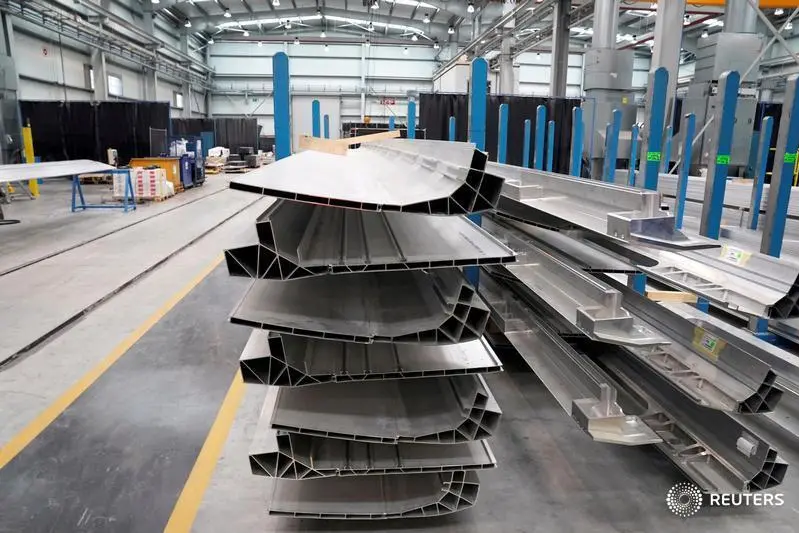PHOTO
TOKYO- The quarterly negotiations for Japan's aluminium premiums for April-June are expected to take longer than usual due to uncertainty over supply from Russia, five sources involved in pricing talks said on Friday.
Japan is Asia's biggest importer of the metal and the premiums for primary metal shipments it agrees to pay each quarter over the London Metal Exchange (LME) cash price set the benchmark for the region.
Global suppliers such as Rio Tinto and South32 and Japanese buyers, including manufactures of rolled products and trading houses, began price negotiations this week but without any initial offers, which is rare, the sources said. They usually set the premiums within a month.
"The talks will likely be delayed as producers have not made any concrete offers as the Ukraine crisis and sanctions on Russia are intensified, with no visibility of future supplies from Russian producer Rusal ," a source at a trading house said.
"We have not proposed any figure as things in Ukraine are so fluid," another source at a producer said.
With fears of supply disruptions from Russia, which produces about 6% of the world's aluminium, and weaker output due to power issues, aluminium prices surged to a record high of $3,850 a tonne on Friday.
Making things more complicated, premiums in Asia and elsewhere are diverging.
The duty-paid physical premiums in Europe and the United States have soared to above $490 a tonne and $840 a tonne, respectively, while Asia's premiums have fallen to around $110-130 a tonne, below Japan's premiums of $177 a tonne for this quarter, according to the sources.
"Spot premiums are at $120-130 a tonne here because supplies are stuck in Asia due to difficulties to find cargoes to ship them to other areas," a source at a Japanese manufacturer said.
"Producers want to raise Japan's premiums for the next quarter on possible supply disruptions from Rusal, but buyers are seeking lower levels due to cheaper spot premiums here," he said.
The sources declined to be identified due to the sensitivity of the talks.
Russian forces seized the largest nuclear power plant in Europe after a building at the complex was set ablaze during intense fighting with Ukrainian defenders, Ukrainian authorities said.
Earlier this week, sanctions prompted the world's three biggest container lines to temporarily suspend cargo shipments to and from Russia.
(Reporting by Yuka Obayashi; Editing by Kim Coghill)





















